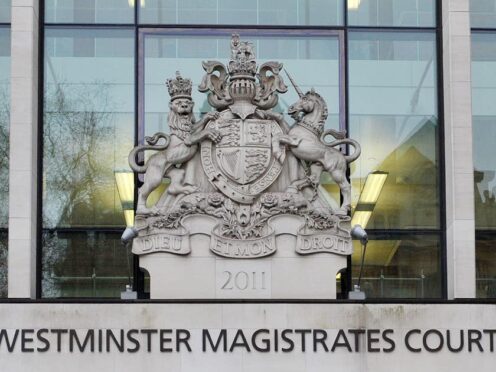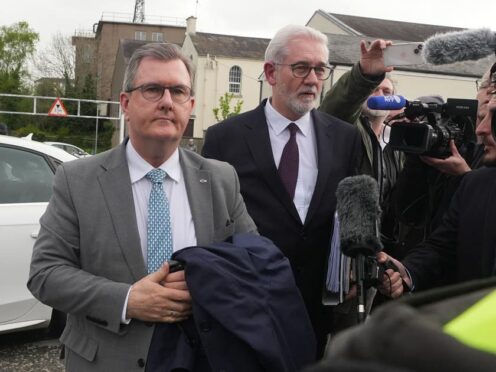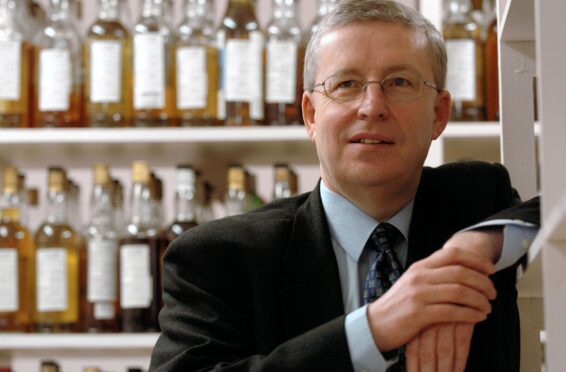The long-term devastation wrought by Covid has been laid bare in a new study revealing that 70% of survivors still aren’t fully recovered five months on from leaving hospital.
Using data collected between March and November on 1,077 patients in the UK who left the hospital following an episode of the virus, researchers from the National Institute for Health Research and Leicester Biomedical Research Centre found that the majority continued to experience negative impacts on their physical and mental health and ability to work.
The stark findings comes at a time when more than 300,000 post-hospitalisation survivors in the UK have been discharged from hospital following a battle with Covid.
The work carried by the University Hospitals of Leicester NHS Trust, the University of Leicester and Loughborough University also revealed that each participant had an average of nine persistent symptoms.
The 10 most common symptoms reported were muscle pain, fatigue, physical slowing down, impaired sleep quality, joint pain or swelling, limb weakness, breathlessness, pain, and short-term memory.
The study also found that 25% of participants had clinically significant symptoms of anxiety and depression and 12% had symptoms of post-traumatic stress disorder at their five-month follow-up.
Meanwhile, 17.8% of the 67.5% participants who worked before suffering from Covid were no longer working and almost 20% experienced a health-related change in their occupational status.
Research highlights long term impact of Covid
Dr Rachael Evans, an associate professor at the University of Leicester and respiratory consultant at Leicester’s Hospitals, said: “Our results show a large burden of symptoms, mental and physical health problems and evidence of organ damage five months after discharge with Covid-19.
“It is also clear that those who required mechanical ventilation and were admitted to intensive care take longer to recover.
“However, much of the wide variety of persistent problems was not explained by the severity of the acute illness – the latter largely driven by acute lung injury – indicating other, possibly more systemic, underlying mechanisms.”
The researchers were able to the classify types of recovery into four different groups based on the participants’ mental and physical health impairments.
One cluster group in particular showed impaired cognitive function, with patients tending to be older and male.
Professor Chris Brightling, a professor of respiratory medicine at the University of Leicester, added: “While the profile of patients being admitted to hospital with Covid-19 is disproportionately male and from an ethnic minority background, our study finds that those who have the most severe prolonged symptoms tend to be white women aged approximately 40 to 60 who have at least two long term health conditions, such as asthma or diabetes.”
The research has also uncovered a potential biological factor behind some post-Covid symptoms.
Professor Louise Wain, British Lung Foundation Chair in Respiratory Research at the University of Leicester, added: “When we looked at the symptom severity of patients five months after they were discharged from hospital, we found that in all but the mildest cases of persistent post-Covid symptoms, levels of a chemical called C-reactive protein [CRP], which is associated with inflammation, were elevated.”
Meanwhile, one of the purposes of the study was to measure the impact of medicines given during hospitalisation to see if they affect patients’ recovery.
Early indicators from the study show that while giving corticosteroids is a factor in reducing mortality in hospital, it does not appear to have an impact on longer term recovery.
Prof Brightling added: “Our findings support the need for a proactive approach to clinical follow-up with a holistic assessment to include symptoms, mental and physical health, but also an objective assessment for cognition.
“The four severity clusters highlight potential to stratify care, but also the need for wide-access to post-Covid 19 holistic clinical services to include mental health, memory and cognition, and rehabilitation services.
“Continued study of the trajectory of recovery over a longer timeframe, coupled with greater understanding of the biology underpinning post-Covid symptoms, will further inform approaches to the clinical management post-Covid 19 infection.
“As such, patients in the study will be assessed again at 12 months to help gather more data to support this learning.”
The UK Government’s chief medical officer, Professor Chris Whitty, said: “We are in the foothills of our understanding of long term effects of Covid.
“This research provides useful information on the debilitating effects of Covid some people are living with months after being hospitalised.
“It is important that we work out what exactly the various elements of what is currently termed ‘Long Covid’ are so we can target actions to prevent and treat people suffering with long term effects.”
Research “rapidly” growing understanding of virus
Health Secretary, Matt Hancock, believes the research will “rapidly” help health professionals build up their understanding of the virus.
Mr Hancock added: “I know Long Covid can have a lasting and debilitating impact on the lives of those affected and I’m determined to improve the care we can provide.
“Studies like this help us to rapidly build our understanding of the impact of the condition and we are working to develop new research so we can support and treat people.”
Dr Nazir Lone, author on the study and senior clinical lecturer in critical care at the University of Edinburgh, added: “Less than a third of survivors described themselves as fully recovered five months after discharge from hospital.
“People with severe Covid-19 disease admitted to intensive care were most likely to have ongoing symptoms.
“Given that over 20,000 people have been admitted with Covid-19 to hospitals in Scotland, this study highlights the need for comprehensive care for hospital survivors of Covid-19.”











